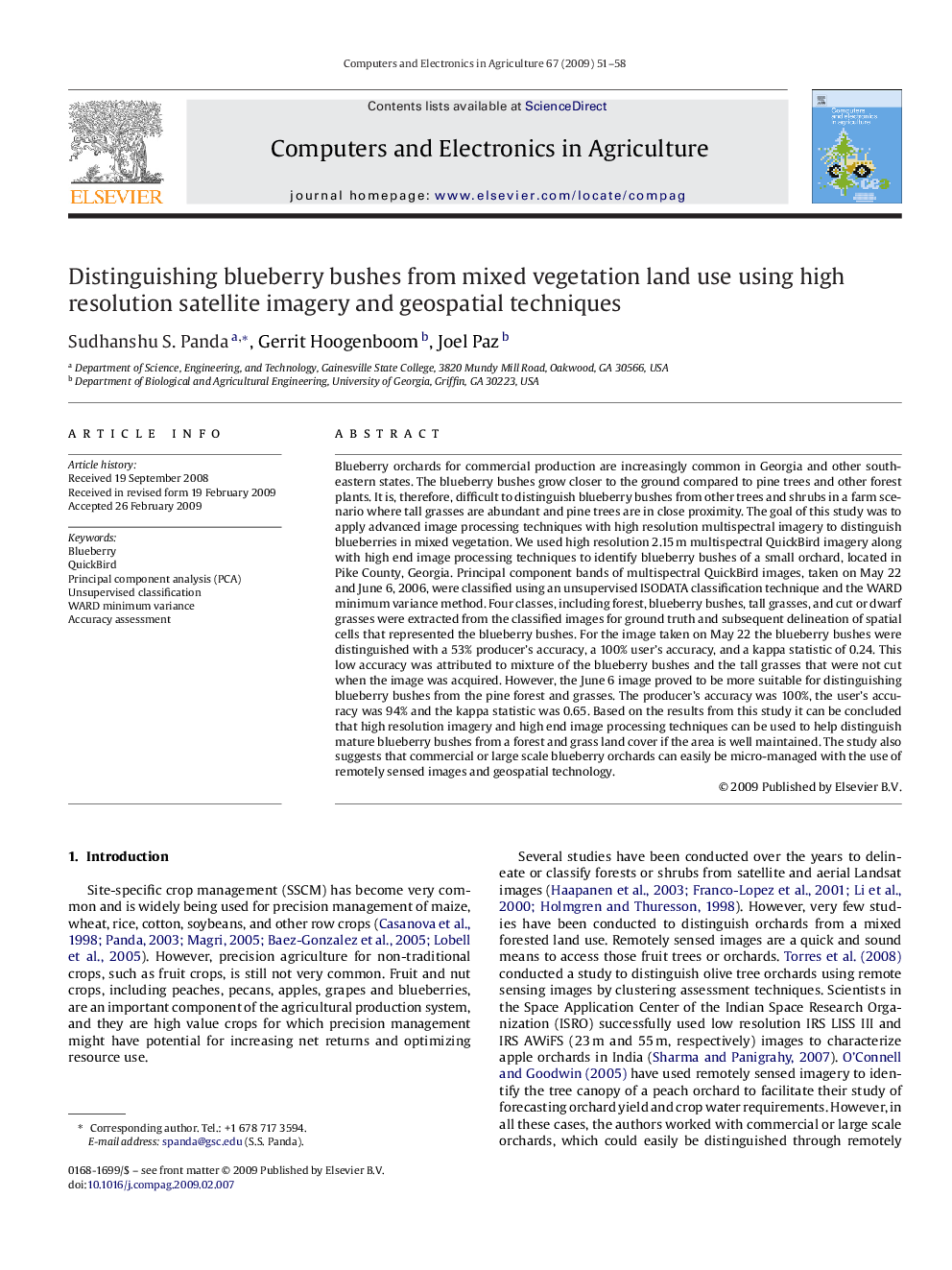| کد مقاله | کد نشریه | سال انتشار | مقاله انگلیسی | نسخه تمام متن |
|---|---|---|---|---|
| 85042 | 158920 | 2009 | 8 صفحه PDF | دانلود رایگان |

Blueberry orchards for commercial production are increasingly common in Georgia and other southeastern states. The blueberry bushes grow closer to the ground compared to pine trees and other forest plants. It is, therefore, difficult to distinguish blueberry bushes from other trees and shrubs in a farm scenario where tall grasses are abundant and pine trees are in close proximity. The goal of this study was to apply advanced image processing techniques with high resolution multispectral imagery to distinguish blueberries in mixed vegetation. We used high resolution 2.15 m multispectral QuickBird imagery along with high end image processing techniques to identify blueberry bushes of a small orchard, located in Pike County, Georgia. Principal component bands of multispectral QuickBird images, taken on May 22 and June 6, 2006, were classified using an unsupervised ISODATA classification technique and the WARD minimum variance method. Four classes, including forest, blueberry bushes, tall grasses, and cut or dwarf grasses were extracted from the classified images for ground truth and subsequent delineation of spatial cells that represented the blueberry bushes. For the image taken on May 22 the blueberry bushes were distinguished with a 53% producer's accuracy, a 100% user's accuracy, and a kappa statistic of 0.24. This low accuracy was attributed to mixture of the blueberry bushes and the tall grasses that were not cut when the image was acquired. However, the June 6 image proved to be more suitable for distinguishing blueberry bushes from the pine forest and grasses. The producer's accuracy was 100%, the user's accuracy was 94% and the kappa statistic was 0.65. Based on the results from this study it can be concluded that high resolution imagery and high end image processing techniques can be used to help distinguish mature blueberry bushes from a forest and grass land cover if the area is well maintained. The study also suggests that commercial or large scale blueberry orchards can easily be micro-managed with the use of remotely sensed images and geospatial technology.
Journal: Computers and Electronics in Agriculture - Volume 67, Issues 1–2, June–July 2009, Pages 51–58